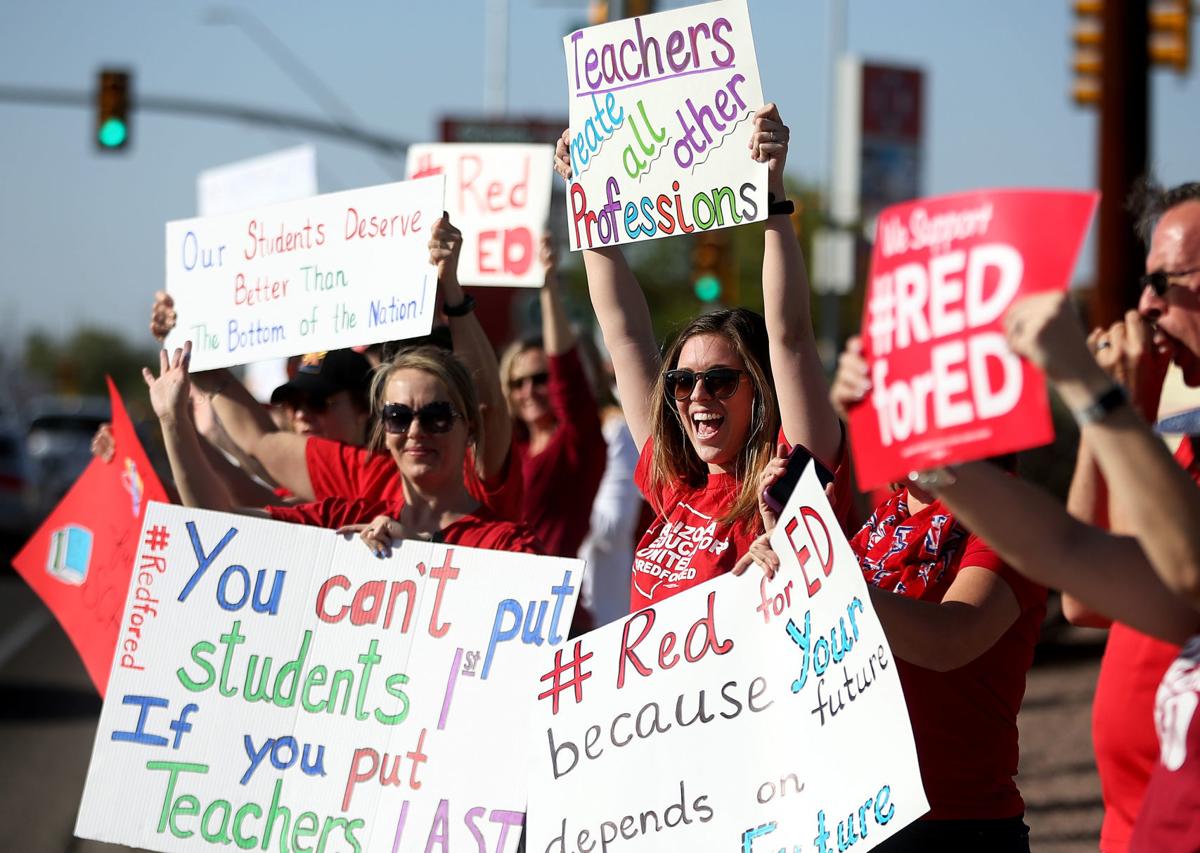As teachers across the state prepare to take to the picket lines next Thursday, parents are scrambling to figure out what to do with their kids, students are scrambling to figure out what it will mean for their graduations, and school district officials are scrambling to answer the public’s questions.
Tucson’s nine major school districts will likely see many schools close starting Thursday, April 26, as teachers join the strike, which was called by Arizona Educators United and the Arizona Education Association after a statewide school employee survey found that 78 percent of the 57,000 respondents supported walking out of schools to put pressure on lawmakers to improve funding for education.
But local district superintendents say they’re doing everything they can to support families during the looming strike and ensure minimal disruption to students and parents.
To that end, some school districts promise to keep schools open, even if they can’t provide instruction.
“Kids come to school obviously to learn, but they are dependent on school sometimes for more than that. Some of our kids need to be fed at school. Some of our parents don’t have child care for them because they think their kids are going to be at school,” Amphitheater Public Schools Superintendent Todd Jaeger said.
Others, however, say if they can’t teach, they’re going to have to close schools. Most school districts said they would make that call on a school-by-school basis. The Tanque Verde School District is doing an “all or nothing” scenario, and if enough schools close, the district will be forced to close them all.
“Essentially, if we think we can have an instructional day, we’ll be open. If not, we’ll be closing (all schools),” Tanque Verde Superintendent Scott Hagerman said.
School superintendents in Southern Arizona uniformly oppose the strike, but many said they appreciate what the teachers are doing to bring attention to the crumbling state of schools and education in Arizona, and that they want to work with teachers to ensure they’re not punished for walking out to pressure lawmakers to find more money for education.
Jaeger said he’s focused on trying to minimize the impact to kids and ensure safety. He is also trying to be open with his teachers that they won’t be disciplined for participating, so that they’ll be open with him.
“I would rather teachers have safe harbor to just say honestly, ‘Look, I’m walking out,’” he said.
Still others are playing their cards close to their chests.
Vail School District Superintendent Calvin Baker wouldn’t provide a blanket guarantee the district won’t discipline teachers who strike, but said the district will treat its teachers who participate with respect.
“We expect people to show up to work. And if they don’t, they should have a good reason for not being there,” Baker said.
State law mandates that schools have 180 days of instruction, and local districts said their schedules would only allow for one or two days off for a strike before the district’s calendar year is extended and summer vacation is postponed.
School officials said they are working to avoid moving high school graduation ceremonies, but warned that if the strike is prolonged, students will likely have to return to school after the graduation ceremonies to earn their diplomas.
“There’s so much logistics with the graduation already, something pretty catastrophic would have to happen before we would move things like that,” Hagerman said. “There are family members who bought tickets from across the country, and a lot of things already in place for that date. I think we’re all on the same page with that.”
As of Friday, most local school districts and charter schools had drafted initial plans for the pending strike, though school officials warned that closures will largely be decided on a day-by-day, case-by-case basis.
Hagerman said the unprecedented scenario will require school officials to be flexible in a fluid situation.
“What you do for one or two days is so different than what you do for a 10-day strike,” he said.





